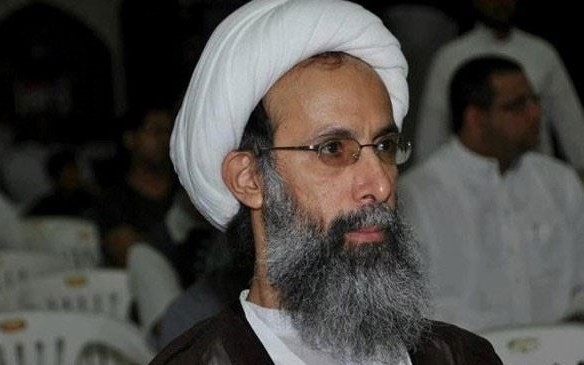Almost four months ago on 2 January 2016, the Government of Saudi Arabia carried out a mass execution of 47 individuals including prominent Muslim Shia cleric and political activist Sheikh Nimr al-Nimr. Authorities executed Sheikh Nimr based a number of charges related to his political activism.
Sheikh Nimr was a political and social justice activist from the Awamiyah village in the Qatif region in Saudi Arabia. He was a vocal critic of the Saudi government and called for peaceful political reforms. Specifically, Sheikh Nimr advocated for nonviolent civil disobedience of discriminatory government policy that led to the marginalization of the kingdom’s Shia community.
Almost all of the charges raised against Sheikh Nimr directly related to his peaceful speeches, sermons, and protest activities. The prosecutor stated that the sermons and speeches disrupted “national unity,” “insulted the king,” “supported anti-state chants,” and encouraged people to demonstrate. An Amnesty International review of the 21 speeches delivered by the prosecutor during Sheikh Nimr’s trial concluded that he did not advocate for violence and was simply exercising his right to free expression.
During his two-year detention, authorities subjected Sheikh Nimr to severe torture and ill-treatment. Much of his detention was spent in solitary confinement in military hospitals and at the al-Ha’ir prison in Riyadh. During his violent arrest, Saudi authorities shot Sheikh Nimr multiple times. International human rights organizations have stated that Saudi authorities denied him surgery to remove a bullet in his back and denied him access to adequate treatment for his right leg.
The Government of Saudi Arabia repeatedly violated Sheikh Nimr’s due process rights by impeding his ability to prepare a defense. After his first hearing, the prosecution failed to present Sheikh Nimr’s legal team with a copy of charges against him. Throughout his trial, Sheikh Nimr had inconsistent access to legal counsel, with authorities often informing his lawyer of hearing dates either a day before the hearing or failing to inform him entirely. The court also refused Sheikh Nimr’s defense team the opportunity to cross-examine the police officers who arrested him. However, the judge accepted written testimony from these police officers. Additionally, Saudi officials replaced the judge in the middle of the trial.
Ultimately, the Specialized Criminal Court (SCC), a security tribunal tasked with prosecuting crimes related to terrorism, sentenced Sheikh Nimr to death on 15 October 2014. Although Sheikh Nimr had no connection to terrorism or terrorist activities, the SCC utilized the kingdom’s 2014 antiterrorism law, which has a very broad definition of terrorism including any acts that “risk national unity,” to try him as a terrorist. Saudi authorities have frequently used the SCC to prosecute and convict reform activists and human rights defenders for their peaceful activities.
The Government of Saudi Arabia executed Sheikh Nimr because he was a vocal critic of its discriminatory practices. The SCC convicted him after an unfair trial marred by numerous due process violations; it sentenced him on charges related to nothing more than his exercise of free speech. He neither advocated nor took part in any violent movement; rather, Sheikh Nimr stood for non-violent civil disobedience to urge reform and promote equality.
Mobashra Tazamal is an advocacy fellow at ADHRB





